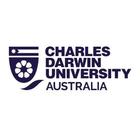Associate Degree of Engineering
Associate Degree of Engineering
The Associate Degree of Engineering will provide a sound basis of fundamental engineering concepts, followed by the application of civil and structural, electrical and electronics or mechanical engineering theory and practice. The course will help you to develop skills for solving common engineering problems as well as prepare you for…
Categories
COURSE DESCRIPTION
The Associate Degree of Engineering will provide a sound basis of fundamental engineering concepts, followed by the application of civil and structural, electrical and electronics or mechanical engineering theory and practice.
The course will help you to develop skills for solving common engineering problems as well as prepare you for further study of more advanced engineering concepts in the Bachelor of Engineering Science and Bachelor of Engineering Honours.
As a civil and structural engineering associate, you will contribute to the design, operation and maintenance of structures and systems for the modern world. Key areas include water resources, roads and traffic, bridges and marine structures.
As an electrical and electronics engineering associate, you will assist with the design, automation and control of devices which make modern life convenient. You are involved in electronics, telecommunications, biomedical applications and power generation, storage and distribution, including renewable energy.
As a mechanical engineering associate, you contribute to the design and construction of devices which improve transportation and provide more affordable manufacturing and production solutions. Key areas include mechatronics, robotics, biomechanical applications, aeroplanes, cars, pumps and pipelines.
In addition to specific engineering knowledge, essential engineering skills including innovation, creativity and teamwork are developed.
This course was developed in consultation with and is supported by industry leaders. It provides a sound foundation of engineering knowledge which can lead to further engineering study or to employment as an engineering associate.
Course structure
The two-year course consists of 16 coursework units.
The first year of study introduces foundation engineering skills common to all areas of engineering. In the second year, students follow a study path specifically developed for their stream of engineering.
This course is available externally by distance learning if you are not able to attend classes on campus on a regular basis. Access to the internet is required for distance learning, with access to high speed broadband highly recommended.
REQUIREMENTS
Admission requirements are met by one of the following:
Successful completion of the Northern Territory Certificate of Education and Training (or equivalent) and the awarding of an Australian Tertiary Admissions Rank (ATAR) of at least 60.
Successful completion of at least 0.5 year of full-time study (or equivalent) of a higher education degree/diploma.
Overseas secondary or tertiary qualifications considered equivalent to the above Australian qualifications.
English language requirements
IELTS Academic Module: A minimum overall score of 6.0 with no band less than 6.0.
Cambridge Advanced English (CAE): A minimum overall score of 169, with no skill below 169.
Common European Framework Certificate of English Proficiency: A minimum overall grade of B2.
Pearson Test of English (PTE) Academic module: A minimum overall score of 50 with no score lower than 50.
TOEFL Internet-based Test (iBT): A minimum overall score of 60 and a minimum writing score of 21.
EDUCATIONAL INSTITUTION
Charles Darwin University (CDU) is a truly unique institution, headquartered in the Northern Territory and spanning the whole country with delivery sites in cities like Brisbane, Darwin, Perth, Melbourne and Sydney and regional hubs such as Alice Springs, Katherine and Palmerston. The university’s multi-campus, virtual and online expertise, course profiles, delivery methods, research activities and operation, result from a commitment to the regions in which it operates. At CDU, international students will benefit from the university’s relatively smaller class sizes and a low student-to-teacher ratio that is in the range of one teacher to every 15-20 students. International students have 11 campuses and centres located around Australia where they could be studying, from tropical Darwin, the outback of Alice Springs or in one of Australia’s more famous cities, Sydney. CDU is ranked number four among Australian universities for undergraduate employment outcomes.




